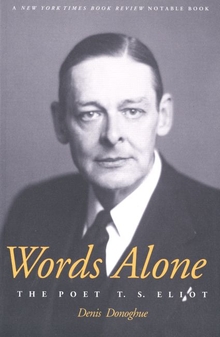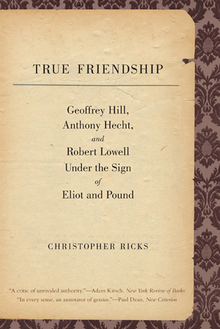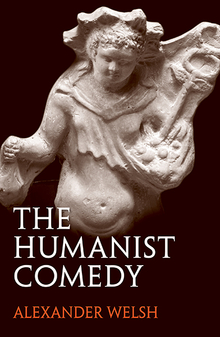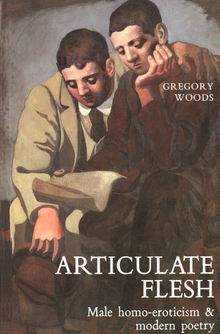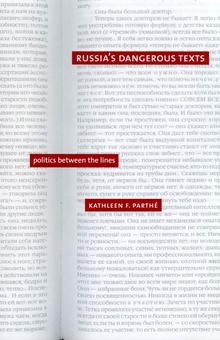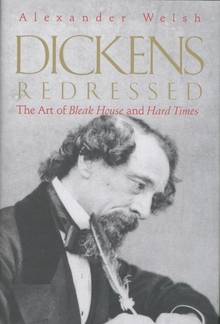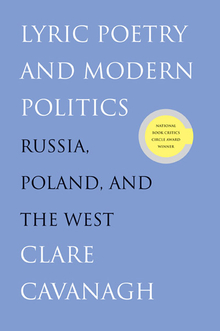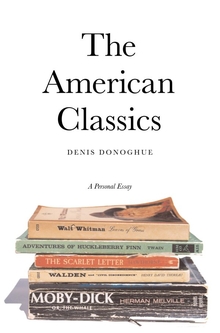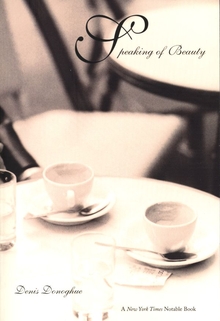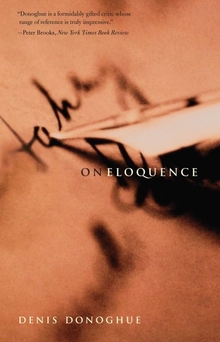Words Alone
WARNING
You are viewing an older version of the Yalebooks website. Please visit out new website with more updated information and a better user experience: https://www.yalebooks.com
The Poet T. S. Eliot
Denis Donoghue
When Denis Donoghue left Warrenpoint and went to Dublin in September 1946, he entered University College as a student of Latin and English. A few months later he also started as a student of lieder at the Royal Irish Academy of Music. These studies have informed his reading of English, Irish, and American literature.
Now in this volume, one of our most distinguished readers of modern literature offers his most personal book of literary criticism. Donoghue’s Words Alone is an intellectual memoir, a lucid and illuminating account of his engagement with the works of T. S. Eliot—from initial undergraduate encounters with “The Love Song of J. Alfred Prufrock” to later submission to Eliot’s entire writings. “The pleasure of Eliot’s words persists,” Donoghue says, “only because in good faith it can’t be denied.”
Submission to Eliot, in Donoghue’s case, involves the ear as much as it does the mind. He is a reader who listens attentively and a writer whose own music in these pages commands attention. Whether he is writing about Eliot’s poetry or confronting the (often contentious) prose, Donoghue eloquently demonstrates what it means to read and to hear a master of language.
Now in this volume, one of our most distinguished readers of modern literature offers his most personal book of literary criticism. Donoghue’s Words Alone is an intellectual memoir, a lucid and illuminating account of his engagement with the works of T. S. Eliot—from initial undergraduate encounters with “The Love Song of J. Alfred Prufrock” to later submission to Eliot’s entire writings. “The pleasure of Eliot’s words persists,” Donoghue says, “only because in good faith it can’t be denied.”
Submission to Eliot, in Donoghue’s case, involves the ear as much as it does the mind. He is a reader who listens attentively and a writer whose own music in these pages commands attention. Whether he is writing about Eliot’s poetry or confronting the (often contentious) prose, Donoghue eloquently demonstrates what it means to read and to hear a master of language.
Denis Donoghue is University Professor and Henry James Professor of English and American Letters at New York University. His book The Practice of Reading, also available in paperback from Yale University Press, received the Robert Penn Warren/Cleanth Brooks Award for literary criticism.
A selection of Readers’ Subscription
“Words Alone is a major work of criticism offering (implicitly or indirectly) a history of the reception of Eliots work, and a substantial reevaluation of the work itself. Donoghue suggests, among countless other valuable arguments and insights, that Eliot was a kind of language poet, who worked by incantation and charms, and that he was often (magnificently) the sort of poet he himself disapproved of, a master of ‘distraught logic’ and ‘musical rather than referential’ authority. ‘I see him,’ Donoghue says of Eliot the person, ‘as a character in a novel by Dostoyevsky.’ And then, magnificently: ‘It is the aim of Eliot’s poetry to make our decisions uninhabitable.’”—Michael Wood, Princeton University
“Donoghue shows us that a master critic not only can reveal the unique brilliance of Eliot’s work, as if for the first time, but also can demonstrate the value and importance of coming to terms with it even now.”—Murray Krieger
“At this moment in our culture it is an act of courage to write an extended sympathetic study of T.S. Eliot, but Denis Donoghue shows us that a master critic not only can reveal the unique brilliance of Eliot’s work, as if for the first time, but also can demonstrate the value and importance of our coming to terms with it even now. Here is a full book, wide-ranging in its learning and remarkably sensitive in applying that learning to its readings. Looking chronologically and in great detail at Eliot’s major poetry and prose, and moving easily from biography to philosophy and aesthetics, Donoghue is yet refreshingly informal and even personal as he relates all these to his own intellectual development. The book is also vitally current in its references to the theoretical thinking that surrounds us as it makes an argument that should challenge every contemporary reader.”—Murray Krieger, University Research Professor of English, University of California, Irvine
“Here is another book about [T.S. Eliot], greatly distinguished and full of insights, by a leading literary scholar.”—Keith Brace, Birmingham Post
“Eliot’s task . . . was to delineate and make palpable the vanity of human wishes. In Eliot it is through words alone—through words only—that the expression is made joyous as well as painful. Donoghue’s achievement in this book is to help us enter more fully into that expression.”—William H. Pritchard, Boston Sunday Globe
“Donoghue describes this volume as ‘partly a memoir, partly a study of Eliot’s poetry’—in other words, a combination of autobiography and criticism. As such it is entertaining as well as informative, bringing together the personal reminiscences of an eminent critic, recent biographical material on Eliot, and sensitive discussion of Eliot’s poetry.”—Choice
“Both readers interested in the nature of poetic language and those troubled by the carping criticism aimed at Eliot in recent decades will find Donoghue an illuminating guide.”—John Ottenhoff, Christian Century
“Words Alone is a timely, accessible, and courageous revaluation of Eliot. . . . Undaunted by the mountains of commentary on Eliot’s oeuvre, Donoghue provides fresh, unselfconscious readings of poems great and small. . . . The text is strewn with phrases that possess epigrammatic wisdom.”—Gregory Wolfe, Commonweal
“This work provides valuable insights into not only a great poet but also the growth of Donoghue’s own literary sensibilities. Highly recommended for academic and larger public libraries.”—Library Journal
“It’s a wonderful guidebook for the student who resolves to get more out university life than high school seemed to offer. Written by two men who obviously love to teach and love to learn, it may not appeal to students looking for shortcuts to economic or corporate advancement.. But for young people looking to develop the attitude of scholarship, it is wonderfully non-preachy, non-stuffy, and enriching.”—Sally Hermsdorfer, Madison Notes
“In Words Alone, [Donoghue] has given us the best book written so far about Eliot. He settles one major question after another, and reinforces his authority with careful and decisive readings of the poems. . . . [T]he book is not only a work of criticism and elucidation but a work of art that, drenched in time and the ongoing conversation about Eliot, managed to bring it all to a point of clarification that has the character of inevitability. . . . Donoghue is an extraordinarily good reader of Eliot’s words.”—Jeffrey Hart, National Review
“[E]veryone who really cares about Eliot’s work should salute this book.”—Paul Dean, New Criterion
“Donoghue’s passionate readings make Eliot sound fresh, lyrical and exciting. Best of all, Words Alone reminds us what it was like to discover poetry and be transformed by its song.”—Phoebe Pettingell, New Leader
“A probing and wide-ranging examination of Eliot’s poetry that treats the work with respectful seriousness.”—New York Times Book Review
“The words and the poet are Donoghue’s concern, the mind that created rather than the man who suffered. Probing, wide-ranging . . . Words Alone is always valuable for its respectful seriousness toward Eliot’s poetry. . . . If Words Alone differs from a standard critical study, it is in Donoghue’s willingness to browse informally through his reading, to use his sources as inspiration rather than armor. . . . Penetrating.”—Adam Kirsch, New York Times Book Review
“I read this book with mounting excitement, and finished it confident that it is the best yet written on its subject.”—Lachlan Mackinnon, The Independent
“Words Alone is Donoghue’s most interesting and in certain ways his best critical study. . . . [This is] a book occupying a genre almost of its own and a great triumph.”—James Olney, The Southern Review
“This is a wonderful book, with much to recommend it. When the recovery of Eliot gets underway—as it inevitably will—in the near future, the first explorers back to the scene will find in this book a cache full of supplies on which they will gratefully draw.”—Virginia Quarterly Review
“Superb. . . . Donoghue has been reading, teaching, and writing about Eliot for more than 50 years; Words Alone bears the stamp of someone who has lived with this poetry, not merely studied it.”—Steven Moore, Washington Post Book World
“Donoghue has found a new way of combining autobiography and criticism, and the justification for the experiment is the maturity—the wisdom—of his commentary on Eliot’s poetry. Resolutely a Christian himself, he does something slightly unusual and comments on the poems with a Christian intimacy, but his work is always illuminated by a decisiveness and strength that will make it valuable to all intelligent readers.”—Frank Kermode
Named a Notable Book for 2000 by The New York Times Book Review
ISBN: 9780300097191
Publication Date: August 11, 2002
Publication Date: August 11, 2002
352 pages, 5 1/2 x 8 1/2

